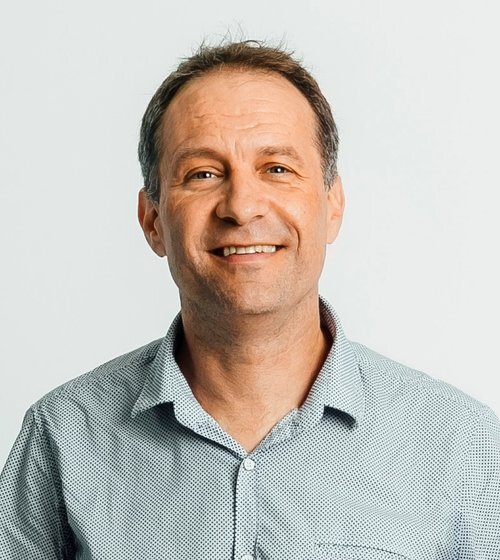Ryan Wallman talks copy
Ryan Wallman works at Wellmark as their Executive Creative Director (Copy). Wellmark is a Melbourne-based creative agency that specialises in healthcare; everything from pharmaceutical marketing through to consumer health campaigns.
Ryan Wallman
What keeps you working in copy for the health sector?
I got into this industry because my background was in healthcare – I originally trained in medicine and then worked as a doctor for about seven years before changing tack. I’d always loved writing, so healthcare writing seemed like a logical choice.
To be honest, if I was only doing technical medical writing, I probably wouldn’t have stayed for as long as I have. But I’m lucky in that my current role involves a mix of creative direction, copywriting and technical writing.
The other thing that keeps me in this sector is that the general quality of healthcare creative work has improved markedly in recent years. It’s no longer a ‘last resort’ for creatives, as evidenced by the movement of formidably talented people from the consumer side.
Not only that, but healthcare presents opportunities to work on brands that literally save lives and improve people’s quality of life. That’s a pretty powerful motivation to stay.
Have you observed any significant shifts in healthcare marketing strategies over the past couple of years — especially concerning how brands communicate with their patients?
Have you observed any changes in how brands communicate with their patients?
While it’s not an especially recent shift, I think there’s an increasing recognition that patients are becoming more self-directed in learning about healthcare products and services, so marketers have had to adjust to that in their communications. The days of ‘doctor always knows best’ are long gone.
In pharmaceutical marketing, that shift has been underway for a while – communications to healthcare professionals are increasingly focused on the patient perspective, and are often complemented by patient support programs and similar initiatives.
Is there anything about content marketing that annoys you?
The term, for one thing! I’m a bit of a curmudgeon about this, but I just don’t think ‘content marketing’ is a distinct discipline. For the most part, it’s just a new term for aspects of marketing that have been around for decades.
That aside, what really annoys me about content marketing is the notion that every business needs to crank out content for the sake of, well, cranking out content. Some content marketers seem to think that quantity trumps quality – to the point that the content itself almost becomes irrelevant. That’s just silly, in my opinion.
Can you give me an example of some content you remember admiring?
I’ll give you a healthcare example that blew me away, called ‘The Hardest Crossword’.
It was a crossword that ran in The New York Times but was based on the experience of an actual patient with Alzheimer’s disease. It was used to promote the Alzheimer’s Foundation of America:
The agency behind this campaign is Area 23, who have pretty much become the gold-standard healthcare agency in recent years. They do some incredible work.
What motivated you to write How Brands Blow, a follow-up to Delusions of Brandeur?
The main motivation was that Giles Edwards and I had promised a sequel to Delusions of Brandeur for some time. We were ridiculously late in delivering it!
Aside from that, I guess we were motivated by the fact that the industry continued to be ripe for commentary/satire/piss-taking, and we’d accumulated a fair bit of material over the intervening period… so it felt like it should go somewhere more substantial than X or wherever.
Not to mention that Giles is a master at making my work look better than it is, which was a motivator in itself.
With an increased use of GenAI, how can copywriters maintain authenticity and the 'human touch' in their work?
This is going to sound a bit self-helpy, but I think you need to know your own voice first. And when I say that, I don’t necessarily mean your personal tone of voice (although that’s obviously important if you’re writing under your own name). I mean that of the brand/client you’re writing for.
I’m no expert in AI, but from what I’ve seen and read about them, LLMs inherently tend towards the generic.
To that end, if you’re going to use AI, make sure you know what you want the end result to sound like before you prompt the fucker – and then edit mercilessly.
Lastly, what advice would you give to someone new to copywriting?
In a word, study! I don’t mean you necessarily need to undertake formal study, but it’s vital that copywriters understand the principles of effective copywriting. There seems to be an increasingly pervasive view among copywriters – and marketers more generally – that education is not important. Trust me: it is.
So if you want to be a good copywriter, read A LOT. The fundamentals of copywriting have never really changed (despite what some people will tell you), so study the work of the great copywriters of the past. And just as importantly, read widely beyond that – fiction, non-fiction, whatever. Reading makes you a better writer.
Buy Ryan’s latest book, How Brands Blow.
=====



